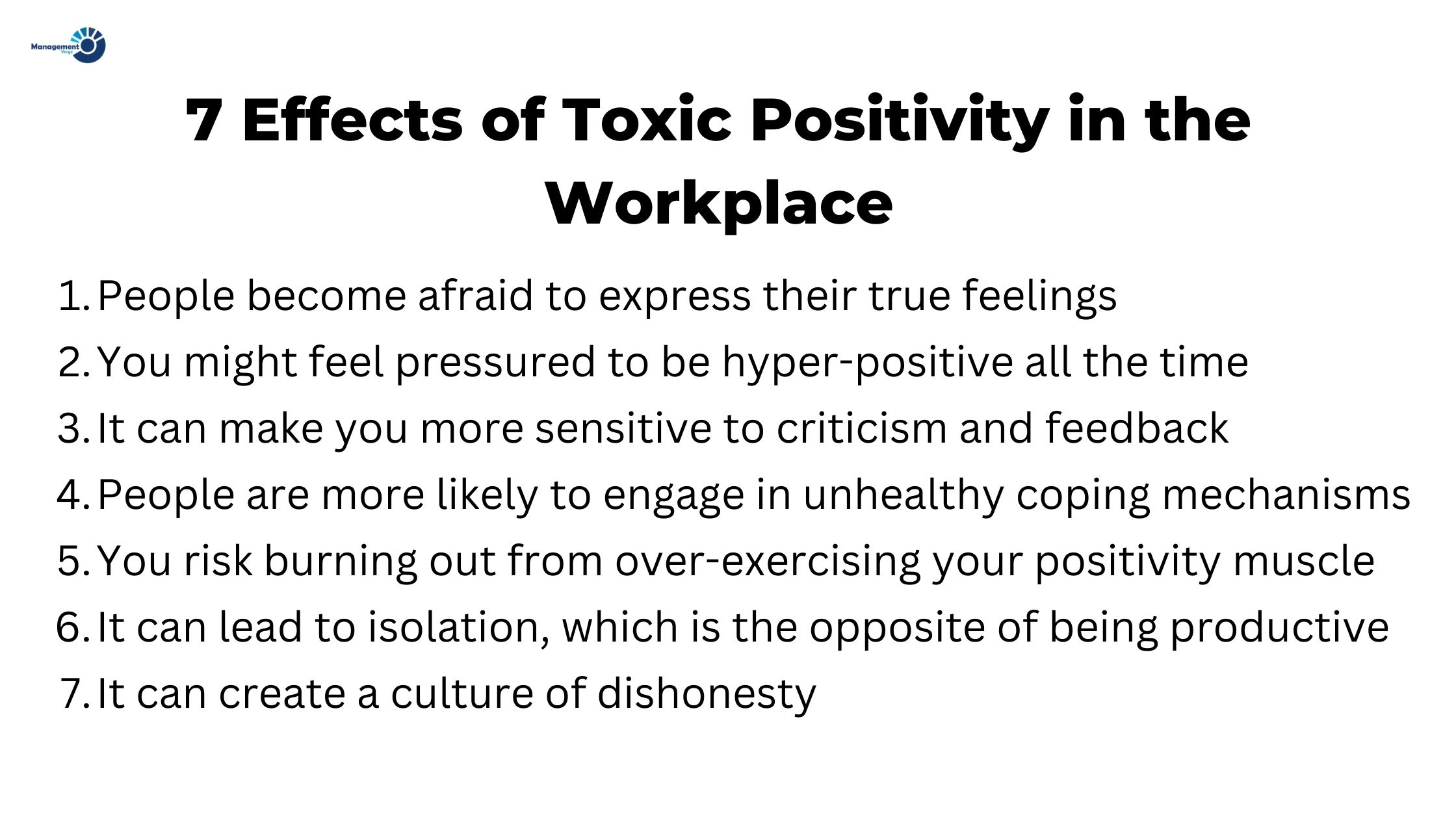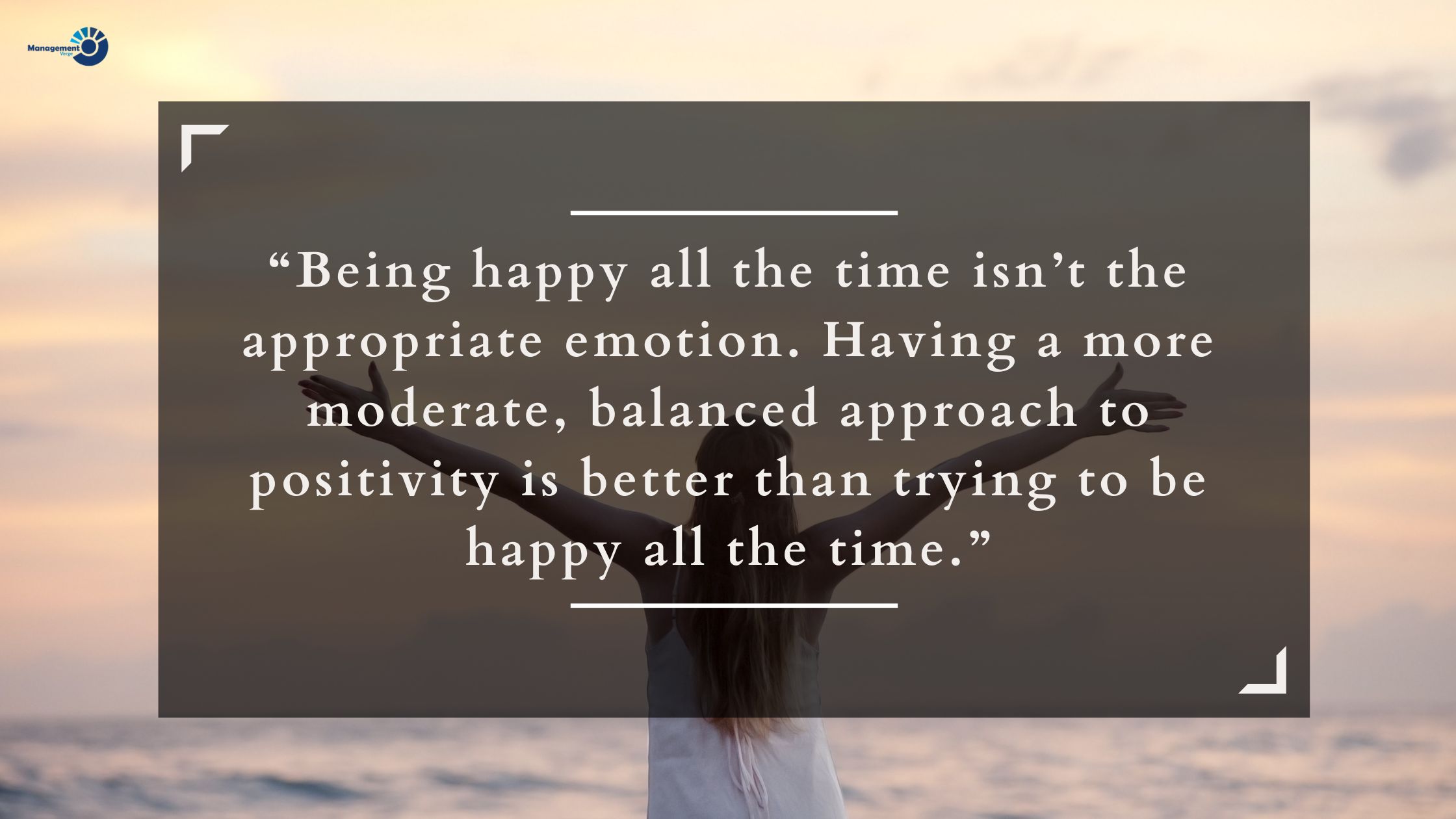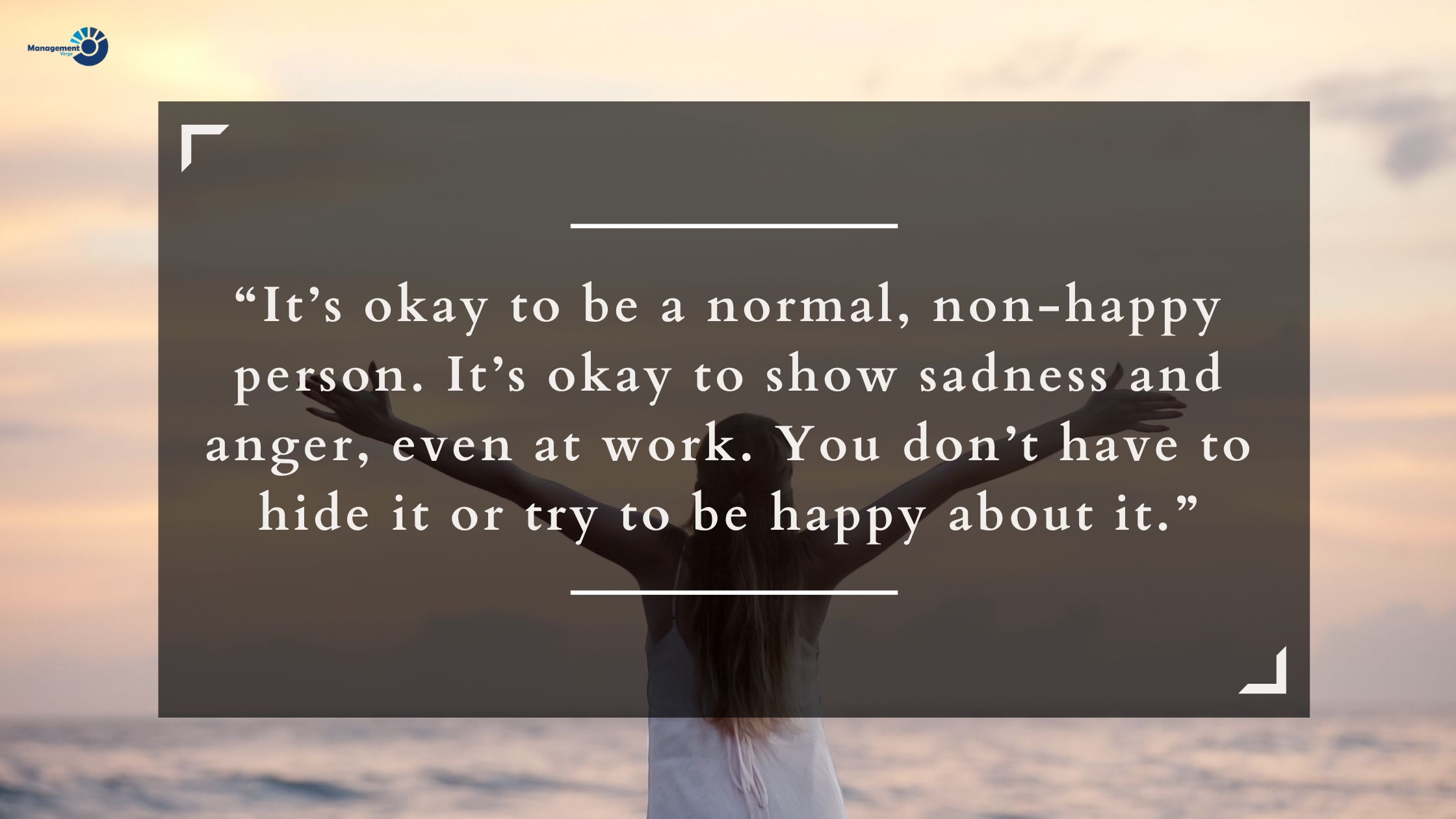Everyone loves a good motivational talk. Whether we need one or not, doesn’t matter—most people respond positively to a motivational speech or positive words. Positivity is good for us. It is healthy and natural to have optimism, especially at work. But there is such a thing as “too much of a good thing”, even when it comes to positivity. If you’re wondering whether your workplace has crossed that threshold and dipped too far into the positive side of things, keep reading for a quick list of red flags that indicate toxic positivity in your office environment. This article will discuss the definition of Toxic positivity and the effects of toxic positivity in the workplace.
Toxic Positivity Definition
Toxic positivity is when someone actively denies the real negative emotions and extrapolates a happy, optimistic situation across all circumstances. When you are around people who are focused on toxic positivity, it is difficult for you to share true human feelings, especially when you are in a tough time, because they will consider your emotions to be disregarded, insignificant, or simply unjustified.
However, in the workplace, toxic positivity is used to describe behaviors that are falsely cheery and upbeat. The border definition of toxic positivity in the workplace is when people use fake positivity to mask toxic behavior. Toxic positivity can be emotional manipulation or gaslighting. The problem with being overly cheery is that it can lead to an artificial and unhelpful environment. When people feel like they have to constantly pretend to be nice and positive all the time, it can create stress and anxiety. And when you force people into a box of fake kindness, things will inevitably break.
7 Effects of Toxic Positivity in the Workplace

A happy work environment has been shown to increase productivity, but there’s such a thing as too much positivity in the workplace. Research shows that over time and when taken to excess, positivity can have negative effects on both personal and work life, so here are 7 effects of toxic positivity in the workplace.
1. People become afraid to express their true feelings
Toxic positivity can be mistaken for an attitude of optimism, but it does not account for how people are feeling or what they’re dealing with at any given moment. When someone is toxic positive, they might say things like, “we’re so lucky to have this job”, or “It’s all going to work out” in every situation. The problem with this type of behavior is that it puts undue pressure on other people who feel like they need to put on a happy face when they are feeling anything but happy. This type of behavior also makes people afraid to speak up about their feelings and concerns because they don’t want to rock the boat by being negative.
2. You might feel pressured to be hyper-positive all the time
If you work in an environment that’s hyper-focused on positivity, it can be incredibly uncomfortable to function in such a tight seal. You could feel under constant pressure to be all happy, which can actually lead to a lot of stress.
One study found that people who are constantly being asked to be happy experience more stress and anxiety than those who are simply asked to be positive. So when your supervisors or colleagues are asking you to be happy all the time, you might actually be feeling more stressed than when there’s a more normal level of positivity in the office.
3. It can make you more sensitive to criticism and feedback
This is another potential problem with being pressured to be happy all the time. It’s possible that if you are constantly being asked to be happy, you might become more sensitive to criticism. You might feel more vulnerable to feedback and criticism, even if it’s constructive and helpful.
According to a study, positive people feel better after receiving negative feedback, while those who are forced to be happy are more sensitive to it. There’s a big difference between being positive and being asked to be happy.
4. People are more likely to engage in unhealthy coping mechanisms

When people are asked to be happy, there’s a big chance they’ll engage in unhealthy coping mechanisms. It’s more likely that people will use less healthy ways of coping with stress and anxiety. When people are constantly being asked to be happy, they might use harmful methods to cover up or deal with the pressure they feel to be happy all the time. While positive affirmations and visualizations can be helpful, pressuring people to be happy all the time can lead to unhealthy coping mechanisms. It’s important to remember that positive thinking isn’t a magic bullet that can cure all your problems.
5. You risk burning out from over-exercising your positivity muscle

While it’s great to have a positive outlook on life and be generally positive, there’s a difference between being positive and being happy. When you’re constantly being asked to be happy, you might be over-exercising your positivity muscle. The problem with trying to be happy all the time is that the more you try to be happy, the more likely you are to succeed. But success isn’t always being happy; sometimes, being happy isn’t the appropriate emotion. Having a more moderate, balanced approach to positivity is better than trying to be happy all the time. It’s important to be able to recognize and understand different emotions, like sadness, anger, and fear. These emotions are important and shouldn’t be ignored just because it’s uncomfortable to experience them.
6. It can lead to isolation, which is the opposite of being productive

One of the biggest effects of being too happy at work is the fact that it might push you towards isolation which is the opposite of being productive. If you’re being asked to be happy all the time, it could be causing you to gravitate towards more positive people. Some of your colleagues might not be as positive as you are, so you might be isolating yourself from them because they’re not as happy as you are. This is a problem because we often get more from our colleagues than from our supervisors. It’s important to have a balance between being positive and being happy. You can be positive without feeling the need to be happy 24/7. It’s okay to be a normal, non-happy person. It’s okay to show sadness and anger, even at work. You don’t have to hide it or try to be happy about it.
7. It can create a culture of dishonesty
Another effect of being too happy at work is that it can create a culture of dishonesty. When you’re being asked to be positive all the time, you might feel like you have to hide your true emotions. That can lead you to become dishonest with your colleagues and even with yourself. It’s important to be honest with yourself and others. If you’re sad at work or dealing with anger, it’s okay. You don’t have to be happy about it all the time. You don’t have to pretend that everything is okay when it’s not.
Bottom line: Be authentic, not robotic.
It’s important to be authentic and not robotic. Being happy is a choice, one that you can make any time you want. However, being positive is something you can do at any time. You don’t have to wait until you feel happy to be positive. When you’re being asked to be happy, remember that it’s okay not to be happy all the time. It’s also important not to feel pressured by others to be happy all the time.


